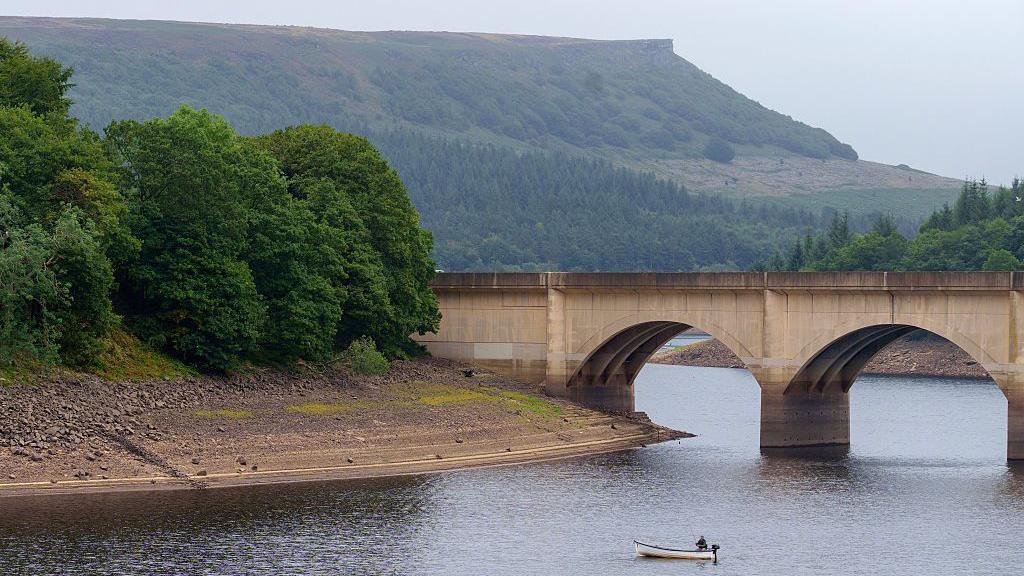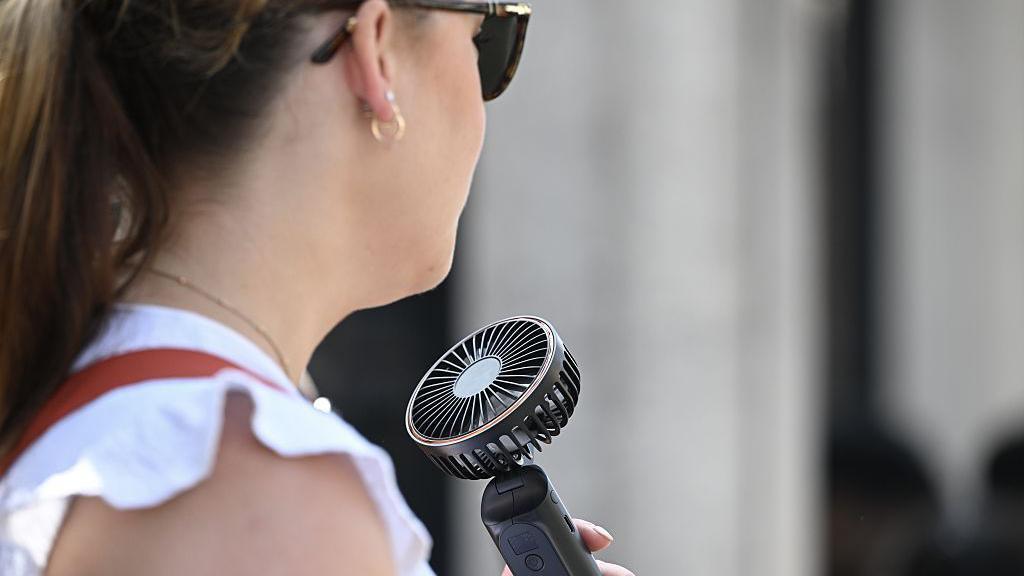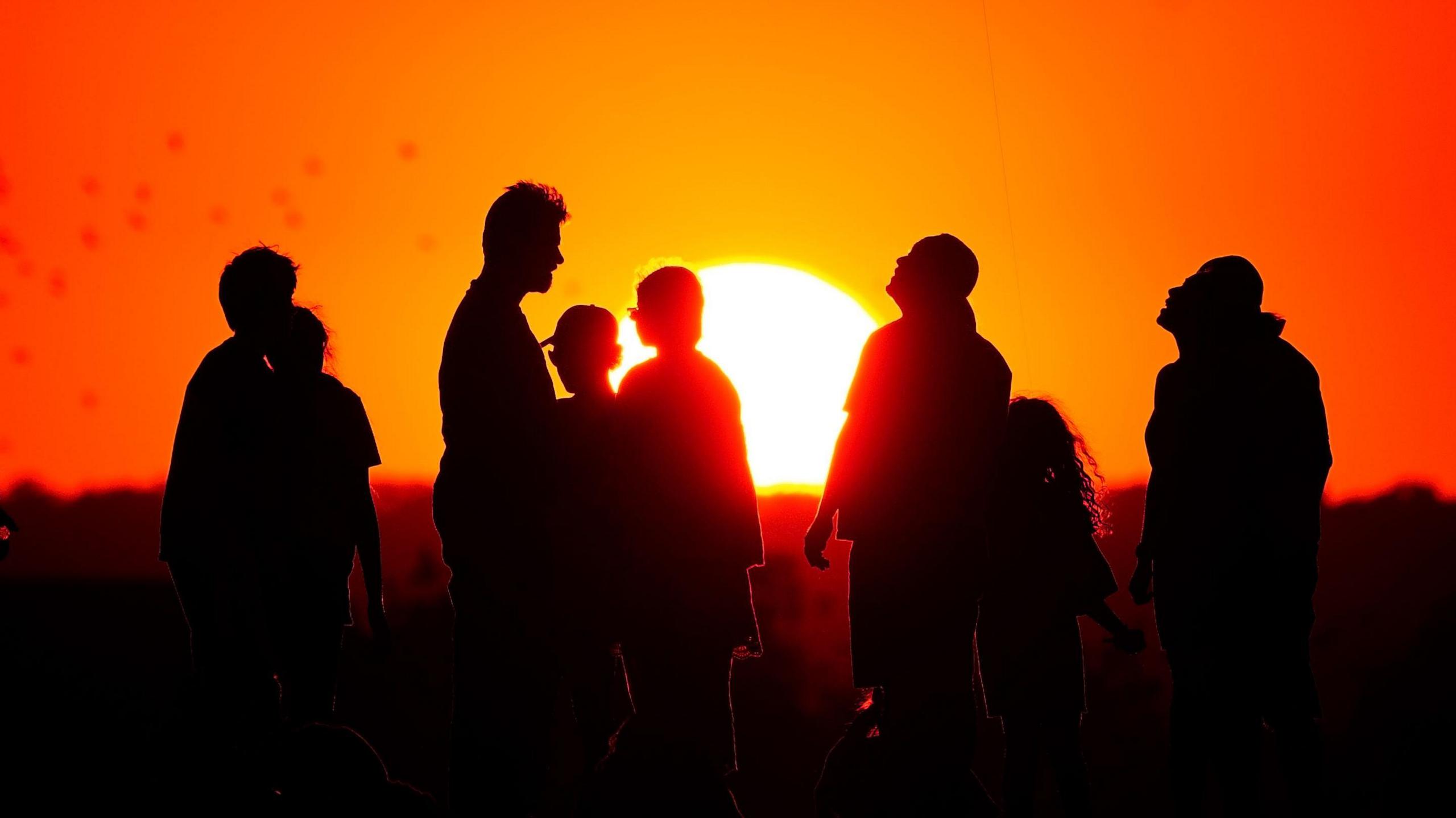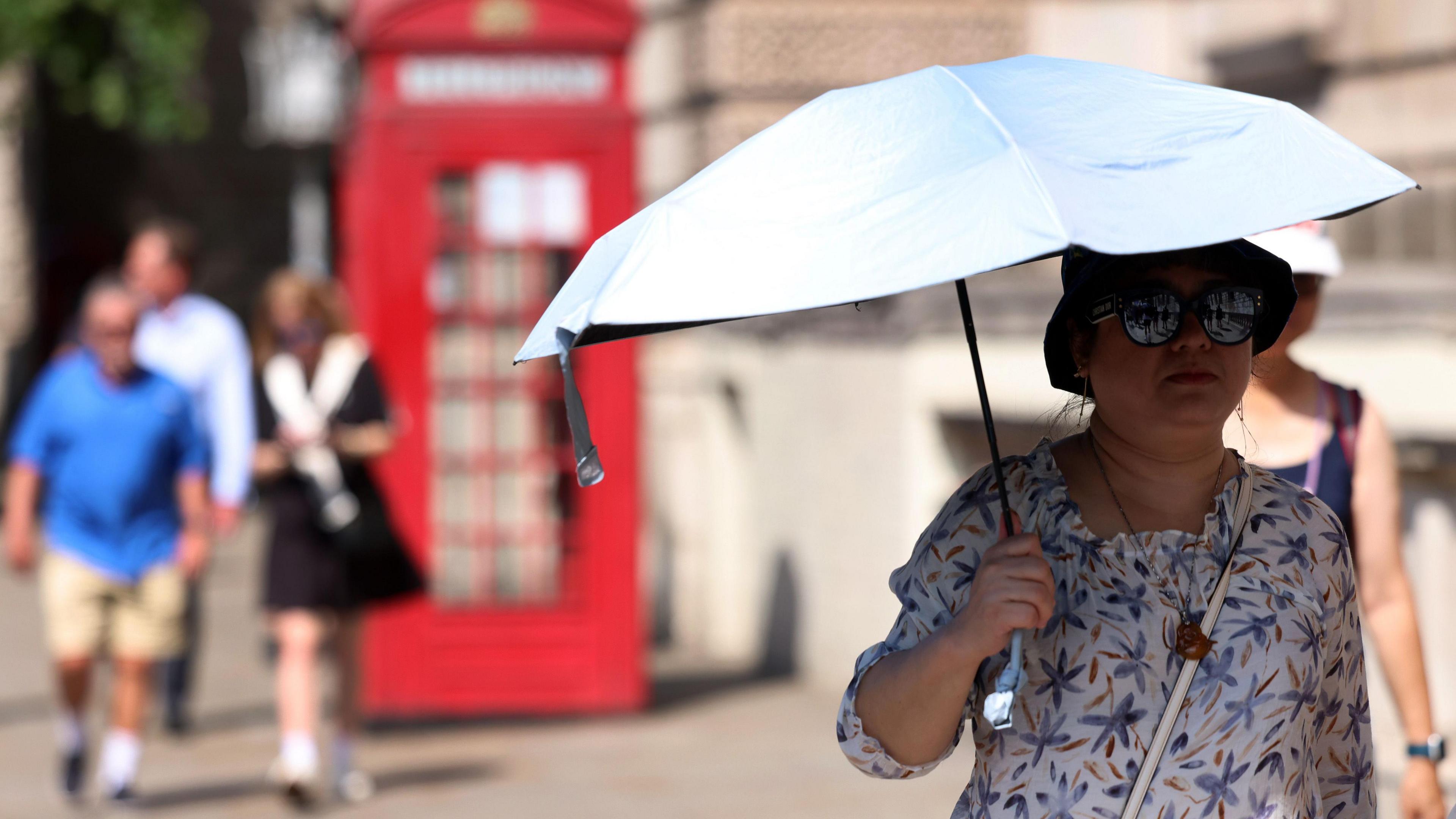Water shortages warning after dry summer

Reservoirs, like this one in Derwent Valley, need to be restocked after a dry summer, an expert has warned
- Published
An expert has warned of possible water shortages if the dry weather continues.
Provisional statistics from the Met Office suggest the United Kingdom has "almost certainly" had its hottest summer on record.
Dr Jess Neumann, associate professor of hydrology at the University of Reading, said the lack of rainfall had a "knock on effect to public water supply, agriculture and the environment".
"Parts of the UK will be in significant trouble if a dry winter follows this summer, as we desperately need rainfall to restock our rivers and reservoirs and recharge our aquifers," she said.
She also said the hot weather this summer had an impact on human health.
'Heat-related deaths'
"Many would say that this has been a 'good UK summer' with lots of warm and dry weather painting a picture of ice creams, beach days and BBQs in the sunshine," Dr Neumann said.
"However this is not the case for everyone and recent studies indicate that there have been hundreds of heat-related deaths during the UK summer heatwaves."
She said "consistently above average temperatures" during the day and night put pressure on the body, leading to health conditions including dehydration, headaches and heat exhaustion.

The UK has "almost certainly" had its hottest summer on record, according to provisional Met Office statistics
The university said it had recorded the highest average temperature of any summer on its records, which go back to 1908.
It said June 2025 was the warmest on its records, and July was the fourth warmest.
August was less warm, but still provisionally above current climate averages, the university said.
Meteorologist Dr Stephen Burt said while summer 1976 remained the warmest in terms of mean daily maximum temperature, summer 2025 stood to be the hottest on the university's record.
The university also said that, as of Wednesday, only 4mm of rain had fallen at the University of Reading Atmospheric Observatory - making August the second-driest on record to date.
Get in touch
Do you have a story BBC Berkshire should cover?
You can follow BBC Berkshire on Facebook, external, X (Twitter), external, or Instagram, external.
Related topics
- Attribution
- Published1 September

- Attribution
- Published24 August

- Attribution
- Published11 July
